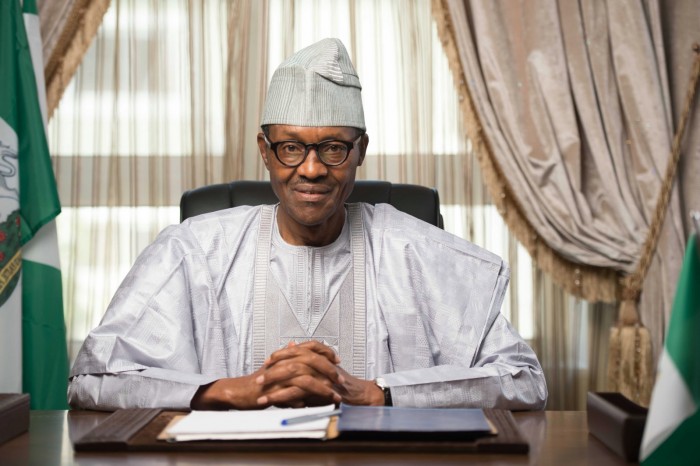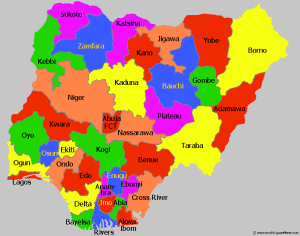Finance
Budget: Nigeria targets N394bn from development partners

ABUJA-THE Federal Government is targeting an inflow of $2bn (N394bn) in 2016 from its development partners such as the European Union, Department for International Development, and the World Bank, among others.
The amount is expected to be sourced through a window identified as the Official Development Assistance.
 The $2bn ODA inflow being targeted for next year represents an increase of $700m or 53.8 per cent over the inflow of $1.3bn in the current fiscal year.
The $2bn ODA inflow being targeted for next year represents an increase of $700m or 53.8 per cent over the inflow of $1.3bn in the current fiscal year.
These figures were contained in the Medium Term Plan 2016-2020 prepared by the National Planning Commission and submitted to the Ministries, Departments and Agencies of government for validation.
The final monetary estimates for the 2016 budget are still being worked out by the respective government agencies and may be ready by mid-November, according to the timeline stipulated by the document.
In the document, which was obtained by our correspondent in Abuja, the government said it would be focusing on six policy thrusts aimed at stimulating growth and reducing the level of poverty in the economy.
The policy thrusts are economic, social development, infrastructure, governance, environment, state and regional development.
An analysis of the document reveals that from the $2bn being targeted as ODA inflow in the 2016 fiscal year, the sum of $1.5bn (N295.5bn) is being planned to be allocated for basic social services.
When compared to the $705m that was allocated for the same purpose in the current year, the $1.5bn indicates an increase of $795m.
According to the document, some of the social development programmes expected to be implemented by the administration of President Muhammadu Buhari are welfare schemes, and conditional cash transfer.
Others are school feeding programmes, pro-poor health care services through health care insurance scheme and the development of educational infrastructure as well as capacity building for technical staff.
In the area of infrastructural development, the document stated that the Federal Government through an Infrastructure Development Fund would be galvanising investments in electricity generation, distribution and transmission, as well gas supply pipeline.
Other areas where investments will be attracted are road rehabilitation and construction, rail network expansion and modernisation as well as real sector development.
Specifically, in the area of infrastructure, the document stated that the priority was to increase installed generation capacity from 7,000 megawatts to 10,000MW.
There are also plans to increase the transmission capacity from 5,000MW to 12,000MW. In the same vein, the distribution capacity is expected to be increased from 6,000MW to 10,000MW.
In terms of rail and road expansion, the document stated that the Federal Government would in 2016 improve the condition of federal roads from the current 31 per cent to 31.5 per cent.
It also said that more narrow and standard gaugelines would be constructed, thus increasing the kilometres of the rail network from 4,017 kilometres to 4,600 kilometres.
Through the promotion of private sector investments in infrastructure, the document stated that the government would be creating 150,000 new jobs for Nigerians.
Vice President Yemi Osinbajo had during the 45th Annual Accountants Conference and 50th anniversary celebration of the Institute of Chartered Accountants of Nigeria stated that the Federal Government would invest more in social sectors to reduce the level of poverty in the country.
He listed other areas where investment would be stimulated to include the school feeding scheme, conditional cash transfer and reflating the economy of the states to boost development.
Osinbajo said that the multiplier effects of the introduction of these programmes would help to create 1.14 million new jobs and increase food production by 530,000 metric tonnes per annum.
On the conditional cash transfer programme, he said this was another avenue for alleviating poverty.
He said the programme was intended to support 25 million poorest households to incentivise vaccination, education and production.
The multiplier effects of the introduction of the programme, he noted, would include lifting millions out of poverty; putting millions into rural production; and boosting rural economy.
PUNCH-
Business
Nigeria pays US$4.9 billion on petrol subsidy in 2024- NNPCL
It was however noted by Biztellers.com.ng, that although subsidy is back in effect, the main reason for that is the increasingly weak state of the Naira and the country’s extreme dependence on products importation. Also unlike the previous subsidy era, where several oil marketers were getting free subsidy refunds for unverified product importation, this subsidy era is witnessing only one importer, the NNPCL, which in effect is the sole receiver of government subsidies.
Yemie ADEOYE
INSPITE of the official position of the Nigerian government that the controversial petrol subsidy is gone for good as announced by the President on assumption of office, the state owned Nigerian National Petroleum Corporation Limited, NNPCL has disclosed that petrol subsidy is still fully operational in Nigeria, although, under a different identity.
Umar Ajiya, Chief Financial Officer at the NNPCL, disclosed that it cost the company a staggering N7.8 trillion (US$4.9) to cover this price gap in the first seven months of 2024.
Rather than simply referring to these claims as subsidies, he stated that the company is merely managing the price difference in petrol imports on behalf of the federation, stressing that this should not be misconstrued as a return to subsidy payments.
![]() This revelation has reignited discussions on whether the NNPC is indirectly offering subsidies, a concept typically defined as selling a product below its cost price.
This revelation has reignited discussions on whether the NNPC is indirectly offering subsidies, a concept typically defined as selling a product below its cost price.
Documents reviewed by Biztellers.com.ng showed that the term “subsidy” was used extensively in official correspondence between the NNPCL and the presidency, particularly in reference to the “shortfall.”
Recall that President Bola Tinubu reportedly approved NNPC’s request to utilize the 2023 final dividends due to the federation to offset these costs.
However, during a media briefing on Monday about the company’s 2023 audited financial statements, Ajiya refuted claims that the NNPC is involved in any subsidy scheme.
Ajiya further disclosed that the Nigerian government owes the NNPC N7.8 trillion ($4.9 billion) in subsidy-related debts for the period from January to July 2024.
In furtherance of his clarification to the News Agency of Nigeria (NAN), Ajiya insisted that no subsidy payments have been made to any marketer in the last nine years, citing the NNPC’s role as the sole importer of petrol under supply contracts.
He said, “In the last eight to nine years, NNPC Ltd. has not paid anyone a dime as a subsidy; no kobo has been disbursed by NNPC Ltd. in the name of subsidy. No marketer has received any payment from us for subsidy.”
“What has been happening is that we have been importing PMS, which has been landing at a specific cost price, and the government tells us to sell it at half price. So the difference between the landing price and that half price is a shortfall.
“And the deal is between the Federation and NNPC Ltd., to reconcile, sometimes they give us money, so there is no money exchanging hands with any marketer in the name of subsidy.”
Ajiya remained silent on how much of the $4.9 billion could have been remitted to the federation account if the NNPC had not been covering the “shortfall.”
It was however noted by Biztellers.com.ng, that although subsidy is back in effect, the main reason for that is the increasingly weak state of the Naira and the country’s extreme dependence on products importation. Also unlike the previous subsidy era, where several oil marketers were getting free subsidy refunds for unverified product importation, this subsidy era is witnessing only one importer, the NNPCL, which in effect is the sole receiver of government subsidies.
Banking
CBN Denies Currency Devaluation

The Central Bank of Nigeria (CBN) has refuted claims of devaluing the.
Earlier reports suggested that the CBN had devalued the Naira, lowering its exchange rate from N631 to the dollar, compared to the previous day’s rate of N461.60 at the Importers and Exporters (I&E) window.
However, the Central Bank of Nigeria (CBN) released a statement on Thursday through its Acting Head of Corporate Communications, Dr. Isa Abdulmumin, categorizing the report as false information.
In the statement titled ‘CBN Has Not Devalued The Naira’, he said the attention of the apex bank was drawn to the news report by an Abuja based newspaper edition of June 1, 2023, titled “CB Devalues Naira To 630/51”.
However, the CBN stated categorically that the news report was replete with outright FALSEHOODS and destabilizing innuendos, ‘reflecting potentially willful ignorance of the said medium as to the workings of the Nigerian Foreign Exchange Market.’
“For the avoidance of doubt, the exchange rate at the Investors’ & Exporters (I&E) window traded this morning (June 1, 2023) at N465/USS1 and has been stable around this rate for a while.
“The public is hereby advised to ignore the news report by Daily Trust in its entirety, as it is speculative and calculated at causing panic in the market,” the CBN spokesman added.
He, therefore, advised media practitioners to verify their facts from the Central Bank of Nigeria before publishing in order not to misinform the public.
Banking
BREAKING: CBN Increases Interest Rate By 0.5%

The interest rate in Nigeria has been raised to 18.5 percent, up by 0.5 percent, from 18 percent where it was pegged in March 2023.
The Central Banks of Nigeria’s (CBN) Monetary Policy Committee (MPC) resolved to this effect at its third meeting of 2023 in Abuja, on Wednesday.
Governor, CBN, Godwin Emefiele, made the disclosure in the communiqué of the MPC’s meeting, thereafter.
While engaging the media at the end of the two-day meeting, Emefiele, said the committee voted to keep the asymmetric corridor at +100 and -700 basis points around the MPR.
In the view of the MPC, rising inflation rate is traceable to the high energy cost and challenges around the supply chain, among others, which lie outside the corridors of the CBN.
Emefiele said, “The current trend in price development would continue to be monitored by the bank with greater collaboration with fiscal authority to address the drivers of inflation.”
Biztellers reports that the CBN had effected six consecutive interest rate increases, which has seen the rate move from 11.5 percent in March 2022 to 18.5 percent in May 2023.












